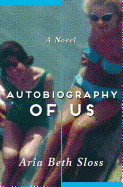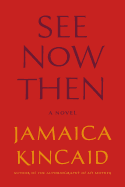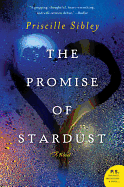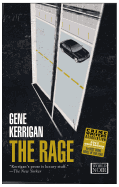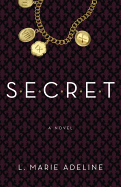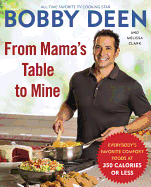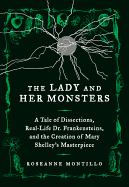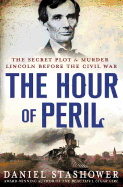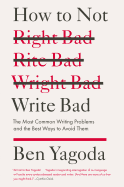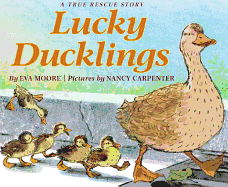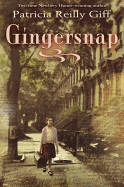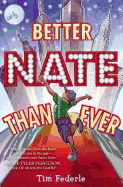 |
| photo: Christine Mladic |
Journalist Teddy Wayne made a splash with his debut novel, Kapitoil, earning a 2011 Whiting Writers' Award and a New York Public Library Young Lions Fiction Award. He was also a runner-up for the PEN/Robert W. Bingham Prize, a Dayton Literary Peace Prize recipient and a New York Foundation for the Arts finalist. With his newest book, just out from Free Press, The Love Song of Jonny Valentine (see our review below), Wayne will likely make another splash. The story of a child music phenomenon, the book is told from the 11-year-old superstar's perspective and is sure to have readers looking at the music industry in a new light.
The Love Song of Jonny Valentine has a strong basis in our current popular culture. You've mentioned that you noticed Justin Bieber seemed designed for the rigors and demands of fame, but that you wondered what would happen if someone with your mental makeup was placed in the same position. Do you think anyone has that mental makeup at 11?
There are several examples of children who have successfully transitioned to adults within the entertainment industry: Justin Timberlake, Natalie Portman, Joseph Gordon-Levitt and Neil Patrick Harris, to name just a few. And I'm sure there are far more who have made their peace with celebrity, ducked out, and been happier for it. In Jane O'Connor's study of the phenomenon, The Cultural Significance of the Child Star, she posits that child stars occupy a nether region between child and adult. Jonny refines this idea: he believes you either need to be truly a child in a child's body, or an adult in a child's body, to make it out alive.
If we compare Jonny to someone like Michael Jackson, do you think this phenomenon has changed?
Michael Jackson was as warped as anyone in history by his celebrity, though much of that can be attributed to his family dynamics. I think it's absolutely gotten worse for celebrities overall the last 15 years, and children more so: the media is far more intrusive, entertainers are expected to sell and brand themselves as much as their work (as on Twitter), and the public is crueler than it used to be, in part because of the previous two paradigm shifts. Technology--social media, digital cameras, the 24-hour Internet-aided news cycle--amplifies all the conditions of celebrity through constant media surveillance, because without media, celebrity almost doesn't exist (or at least not the way we understand it now).
Looking at Jane, Jonny's mother, readers may wonder how a mother who cares about her child would ever subject him to such things. And yet many of the parents who will criticize Jane (or her real-life counterparts) are the same parents who buy the tickets to the concerts and the music for their children, thereby perpetuating the cycle. Why can't we see the irony in this?
Not to mention the parents who are loving and protective but also push their children to fill their schedules with activities, ostensibly to enrich their lives, but often to promote future success. Jane is an extreme example of a parent who fiercely loves her child, but whose love is also, at times, a selfish act. Either it enables her to feel some love in this world, or, more callously, she uses Jonny to get what she can't on her own--money, power, attention. While most parents don't exploit their children's labor so egregiously, I do think most of us are guilty of occasionally "training" them instead of simply raising them.
There are several characters in Jonny's life who remind him he can walk away from fame. One is his bodyguard, Walter. Another is his tutor, Nadine. How do you feel their love for Jonny compares to Jane's?
They are more selfless caretakers of him, it's true, though he has some other hangers-on whose solicitousness is ambiguous. But the novel needed some emotional ballast to prevent it from being a screed about how everyone preys on this young boy. Walter and Nadine serve as surrogate father and mother figures for Jonny, employees who care more about his well-being than their own financial security.
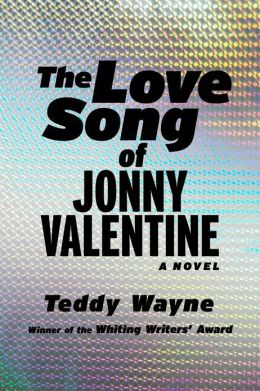 Was your prep for the book strictly book/magazine/Internet research or do you have "hands-on" experience with this?
Was your prep for the book strictly book/magazine/Internet research or do you have "hands-on" experience with this?
I do know a couple of people who were child stars, so I suppose that was somewhat hands-on. Otherwise, although it's not nearly the same ballpark as global-celebrity fame, I experienced the same slew of emotions I think most first-time writers do when my debut novel came out: excitement, but also anxiety over its emergence into the public. I started thinking about how actual celebrities negotiate the stresses of their much higher-stakes jobs--and then wondered how an adolescent might handle it.
Your first novel, Kapitoil, dealt with a character, Karim, "coming of age." He was acclimating to a new culture while quite proficient in his business jargon. Jonny isn't coming of age literally, but in many ways he's forced to do so figuratively. What similarities and differences did you note when writing these two characters?
They certainly share some similarities: a naïveté tempered by savvy understanding of their professions, although Jonny is much more cynical about the music industry than Karim is about finance. Both are steeped in the language of their fields: Karim speaks like a techno-financial manual, and half of Jonny's thoughts and dialogue could issue from the mouth of a marketing executive. But Karim is far more of an outsider, new to America and ignorant of its customs, and marked as a foreigner by his appearance, background, and manner. Jonny seems to be the ultimate insider--a celebrity, the trendsetter we all look to for our own self-definitions--but he feels like he doesn't belong, as well. I've always been attracted to alienated protagonists, as a reader and a writer.
In an interview you mentioned one of the themes of Kapitoil is how culturally empty the late '90s were, especially musically. And in The Love Song of Jonny Valentine, one of Jonny's opening acts is a group called the Latchkeys. Jonny recognizes the talent in this group, but they are quickly dropped by their "big label" when a scandal occurs. Is Jonny Valentine an indication that the "cultural emptiness" is still true today?
I was referring specifically to a short time period before 9/11, when I would say that not much was happening that was groundbreaking in popular culture in TV, movies, and music. The Sopranos heralded the start of the kind of complicated, sprawling TV shows we're now accustomed to, but that was about it; the independent film movement of the '90s was slowing down and hadn't yet benefited from the digital-film revolution, and popular music was boy bands and Britney Spears. While there's still plenty of trash out there--the rise of reality TV, a blockbuster-only mentality for film, and, um, boy bands and reincarnations of Britney Spears--I do think that the last, arduous decade for the U.S., with our renewed awareness of geopolitics and financial hardship, has produced more lasting mainstream art than the 1995-2001 period.
Jonny isn't given a chance to develop his own identity... his weight is constantly monitored, what he says is scripted, what he sings is dictated to him, who he associates with is closely controlled. Is this unique to Jonny or is this something we as a culture impress on our young people?
I'd say the culture impresses it on all of us, young and old--myself, too, even in this interview! While few of us have our parents check our weight on the scale each morning, the media constantly reminds us that looking good is paramount. Though we're not being fed lines like an entertainer, we know that if we say something untoward, it may imperil our public standing. Most of us have to do work we don't really want to do, assigned to us by someone else. And unwritten social rules generally steer us away from associating with people unlike us. One of the purposes of childhood is to have some time before these conditions take root, where you can make mistakes and experiment. Jonny doesn't have that luxury.
In our pop-culture society, who do you think will be the long-lasting stars? Who will be remembered as great musicians, actors, writers, etc., 50 or 100 years from now? And what about them will make them timeless?
That's difficult to say; it's hard to know whether someone is popular because of real talent or because that's how the winds are blowing right now. Whom do we remember from 1963 or 1913? A lot from '63, in all of those categories, but from '13--which, granted, didn't have mass media yet the way it operates now--most people would be hard-pressed to name more than a couple of popular musicians or actors. Check out the list of Pulitzer Prize winners 1918-1947. Only a handful of these novels are still remembered, let alone read. Few of us will outlast our lifetimes--including, I suspect, Justin Bieber and Teddy Wayne.
If you had the power to personally ban one pop culture fad today, what would it be?
The lazy deployment of clichés masquerading as wit or heightened emotion has always irked me. Various slang words and phrases that fall under this jurisdiction, as used in the novel, include "Really?" (when articulated sarcastically); "I'm obsessed [with something]"; and "just sayin' " (as a concluding remark after pointing out an obnoxious observation).
Finally, what's next for Teddy Wayne?
Other than scribbling notes for a nonfiction book, Really?: A Compilation of Irksome Slang of the 21st Century That I'm Totally Obsessed With--Just Sayin', I'm collaborating with Amber Dermont (author of The Starboard Sea and the forthcoming story collection Damage Control) on a screenplay, and with both her and director/screenwriter Yaniv Raz on a TV series. We're trying to suck more air out of the cultural vacuum of the early 2010s in hopes of creating something that no one will remember in 2113. --Jen Forbus of Jen's Book Thoughts
Teddy Wayne: Imagining Child Celebrity
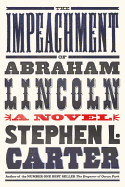 The Impeachment of Abraham Lincoln begins with the question: What if Lincoln had survived Booth's bullet? Yale law professor Stephen Carter begins his novel in 1867, as Lincoln faces impeachment for offenses against the nation committed during the war. At the same time, Abigail Canner, a black woman newly graduated from Oberlin, begins clerking at the law firm hired by Lincoln to defend him. When one of the firm's partners is found murdered, Abigail and her colleagues suspect a conspiracy. Part thriller, part historical novel, Carter's tale is full of colorful characters and intriguing questions.
The Impeachment of Abraham Lincoln begins with the question: What if Lincoln had survived Booth's bullet? Yale law professor Stephen Carter begins his novel in 1867, as Lincoln faces impeachment for offenses against the nation committed during the war. At the same time, Abigail Canner, a black woman newly graduated from Oberlin, begins clerking at the law firm hired by Lincoln to defend him. When one of the firm's partners is found murdered, Abigail and her colleagues suspect a conspiracy. Part thriller, part historical novel, Carter's tale is full of colorful characters and intriguing questions.



 Was your prep for the book strictly book/magazine/Internet research or do you have "hands-on" experience with this?
Was your prep for the book strictly book/magazine/Internet research or do you have "hands-on" experience with this?